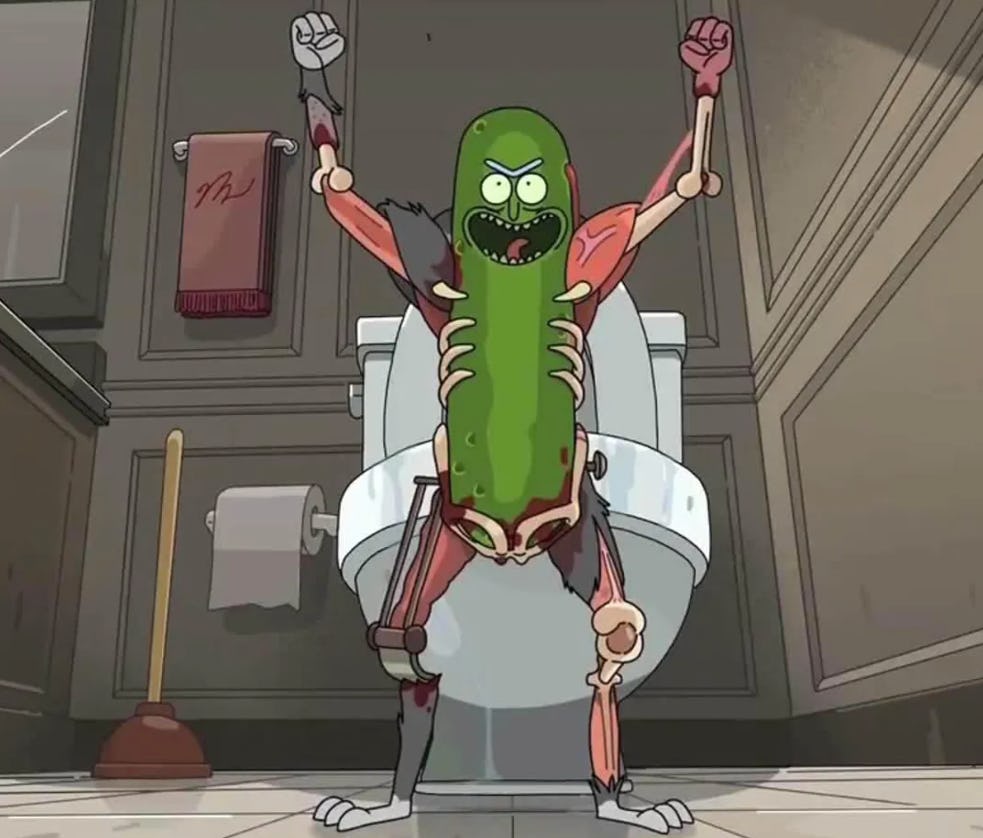
For a show that kicked things off with a storyline about a grandfather forcing his grandson to smuggle Mega Seeds through interdimensional customs in his butt, Rick and Morty can be surprisingly thoughtful. Look no further than Morty’s heartfelt speech to his sister Summer in Season 1 Episode 8, “Rixty Minutes.” But one topic where the show still continues to surprise us is its evolved perspective on mental health and the benefits of therapy.
Ever since her first appearance in Season 3’s “Pickle Rick,” whenever Dr. Helen Wong (Susan Sarandon) shows up as Rick’s therapist, we know she’s going to take him to task for his toxic behavior. While her calm, analytical demeanor is often played for laughs in stark contrast to Rick’s belligerence, she’s often quick to offer poignant insights about how important it is to work on yourself — even if you’re basically the immortal god of the multiverse.
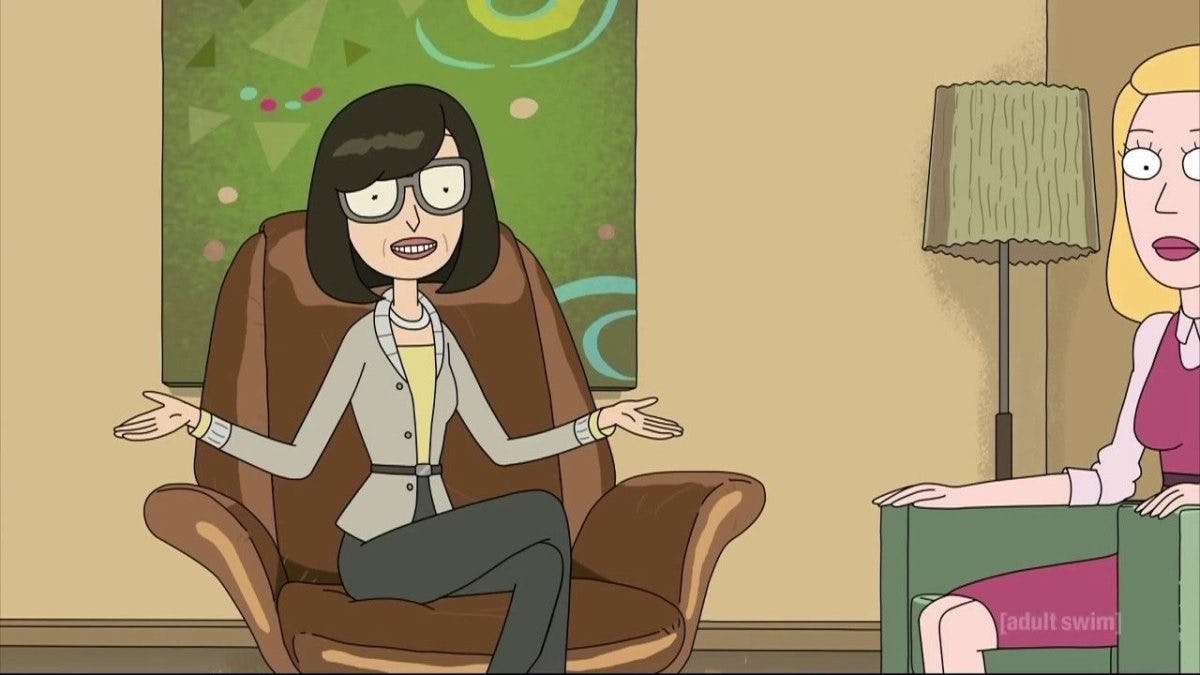
The third episode of Rick and Morty Season 7, “Air Force Wong,” is a major step forward for Rick’s development as a broken man who’s putting in the work to better himself. For an episode so jam-packed with guest stars, the story only works because everybody is here to help Rick along this path in one way or another. That includes his hivemind ex-girlfriend Unity, United States President Andre Curtis, and especially Dr. Wong.
Unity’s first and only other appearance was in Season 2’s “Auto Erotic Assimilation” where she’s introduced as a mind-controlling, galaxy-spanning entity who also happens to be Rick’s ex-girlfriend. What starts as a romantic reunion between one man and an entire planet becomes a reckoning with Rick’s inner demons after he gets dumped.
“I lose who I am and become part of you,” Unity writes in a goodbye letter. In other words, Rick’s appetite for self-destruction (caused by the trauma of losing his original family) is so powerful it can overwhelm a literal hivemind.
The episode’s infamous final scene shows a miserably Rick build and then test a suicide device on an alien blob. He passes out before he can successfully use the device on himself.
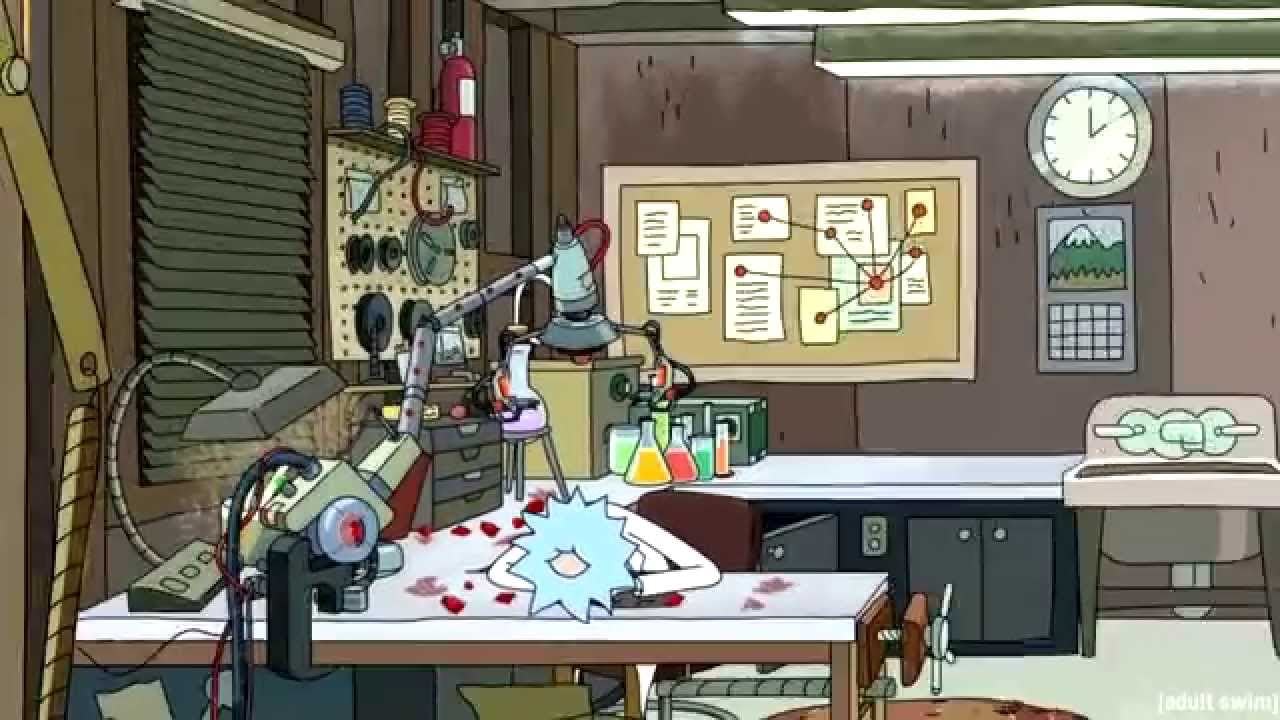
There’s a direct emotional throughline between “Auto Erotic Assimilation” and Rick and Morty’s Season 2 finale, “The Wedding Squanchers.” After the Galactic Federation attacks Birdperson’s wedding, Rick turns himself in so his family can be safe. (Of course, it doesn’t take long for Rick and escape and take down the entire Galactic Federation.)
A few episodes later, Rick turns himself into a pickle just to avoid going to family therapy. When he finally does give in, Dr. Wong is quick to diagnose the root of his problem.
“You seem to alternate between viewing your own mind as an unstoppable force and as an inescapable curse,” she says.
The good doctor pops back up in the Season 4 finale, “Star Mort Rickturn of the Jerri,” implying the family consistently goes to therapy. When the Galactic Federation attacks (led by Summer’s ex-BFF Tammy), Rick responds with: “Tammy, this is the office where my family works to better itself.”
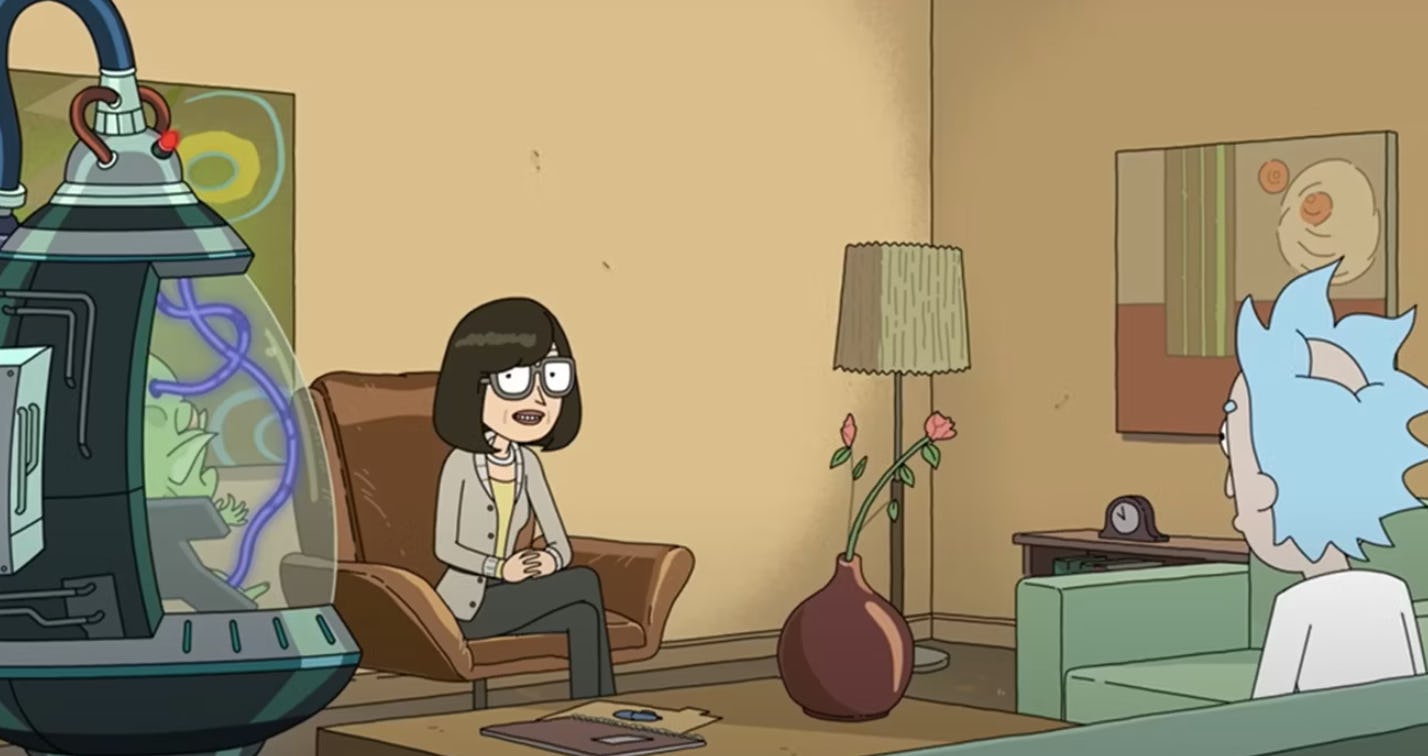
Therapy aside, Rick doesn’t demonstrate any definitive progress until Season 6’s “Analyze Piss” when he turns to Dr. Wong for advice after getting fed up with the “never-ending sea of angry nerds” that see getting in a fight with him as some kind of platform. For once, he accepts the concept of therapy and ignores these annoyances rather than engage with them. After Jerry beats up one called Pissmaster, Rick comes to relate to how much of a “piece of sh*t” he is after overhearing bar patrons talk about him. When he goes to share a six-pack with Pissmaster, the villain has committed suicide. Out of genuine sympathy, Rick assumes his identity and stages it so the man can become a martyr.
It’s interesting that, at the end of “Air Force Wong,” Rick also brings a six-pack to the president. The entire episode feels like the culmination of Rick’s long, emotional journey; particularly in the way he relates to his closest friends and allies.
The episode fittingly opens with Rick in therapy with Dr. Wong when the President calls for help. Rick tells POTUS not to “stigmatize mental health.”
“Therapy’s working!” the President correctly points out. Rick has gone from insulting Dr. Wong with every other word to actively working on himself, and it shows.
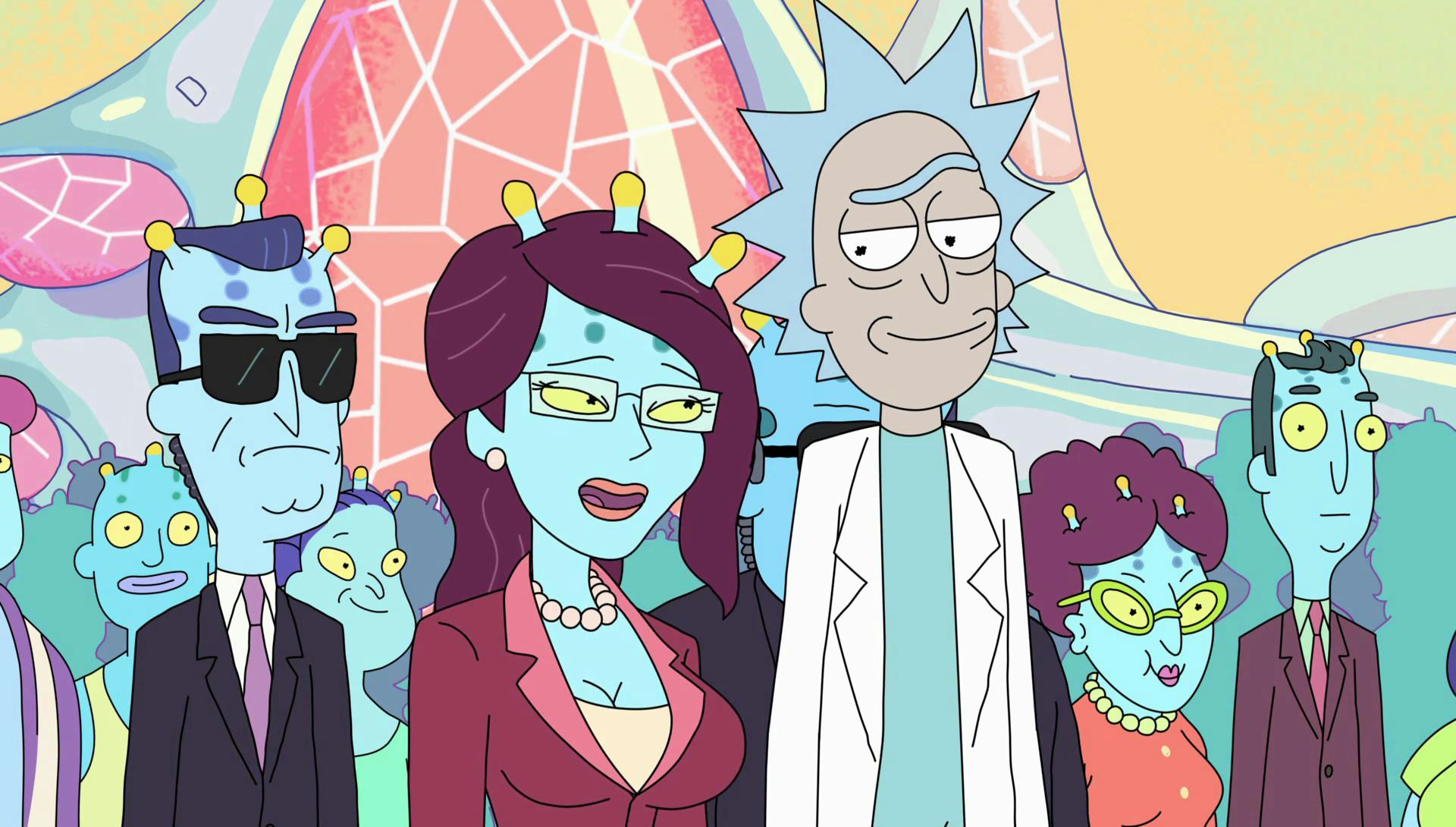
A budding romance between the President and Dr. Wong is the perfect amusing catalyst to really get the story going. POTUS recruits her to help with what he assumes is a “hippie cult” in the state of Virginia, but it’s actually Unity who came to Earth to check on Rick. Wong spends much of her airtime mediating between these warring parties, prodding each of them to communicate rather than give in to rising tempers.
“I don’t trust you!” Rick says to Unity. “You ghosted me to focus on your work. Your work is absorbing the universe, but it’s MY universe! Please go.” Rather than merely be a jerk, he’s at least able to communicate his feelings. Unity, to her credit, agrees to leave. Rick also pushes away the President and Dr. Wong. But the back half of the episode is all about Rick realizing that, in addition to working on himself, he has to work on his relationships.
“You had an outer space lady who was worried for your life, and your response was hostile enough to cause a huge problem,” Wong says in an impromptu couples therapy session. “Now you’re asking her to both forgive you and solve it. Unity, I think the reason Rick brought me here is because he doesn’t know how to indicate to you that he’s changed because he’s changing very slowly — but he is.”
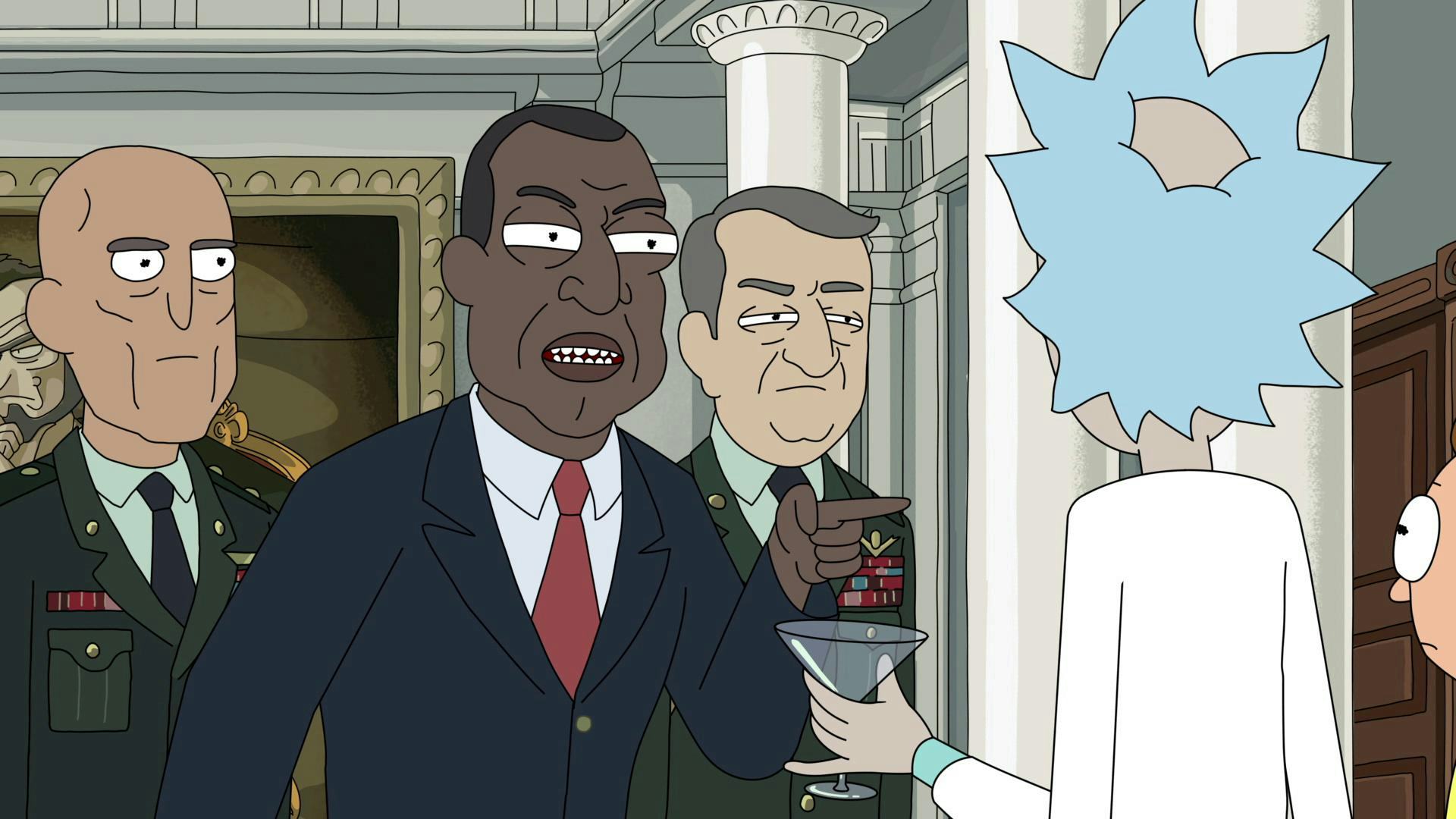
Rather than let negative emotions simmer, it’s vital to digest those feelings, express them coherently, and accept what it all means for the relationship. Rick and Unity’s reconciliation allows them to save the world after the President claims the hivemind for himself to boost his popularity. Afterward, Rick is eager to mend their relationship fully and invites her back to the house, but Unity sets a healthy boundary and leaves. Her faith in him has been shaken, so it may take some time to heal the relationship fully.
What does Rick’s mental health progress mean for Rick and Morty? He’s becoming a better person, but he’s still hung up on tracking down Rick Prime. Ultimately, his desire for revenge still seems to outweigh any personal growth, but maybe with enough time, Rick may actually get to the route of the trauma that made him the jerk he is today.







